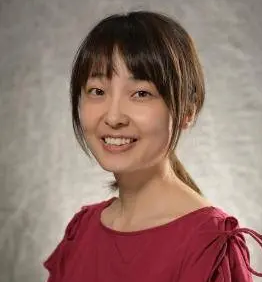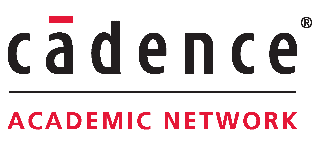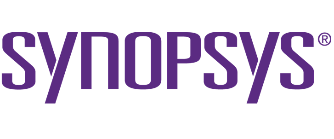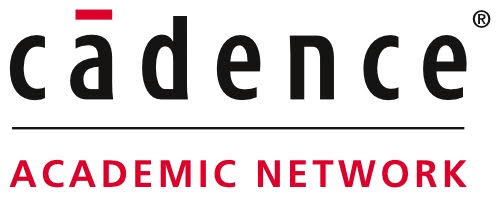ACM/SIGDA Guide to Running or Starting a Conference, Symposium, or Workshop
Revised on May 1, 2020
ACM/SIGDA sponsors a number of conferences, symposia, and workshops, which will be referred to generically as events. The event staff are almost always volunteers, and those involved change on a yearly basis. The purpose of this guide is to give a short overview of how events are run, make you aware of services that ACM and SIGDA can provide, and to help simplify the entire process.
This guide is divided into four sections. First is the “financial” aspect of running an event: contracts with hotels, registration, etc. Second is the “administrative” component: selecting a program committee, setting up a timeline, handling paper submissions and reviews, creating and archiving the event web site, and passing control to the next set of organizers. Third is a checklist and timeline, to give an idea of when various tasks should be done. The last part is about the travel grant.
Financial View
SIGDA is a non-profit professional society–there is no expectation that an event (particularly a new one) will return a large surplus. Having some positive revenue, however, is desirable. The bulk of funds that are used to support student travel, reduced student registrations, online access to DA literature, salary for permanent staff, insurance coverage, among other things, comes from conference revenue. SIGDA membership fees provide almost no revenue.
Cosponsorship and In Cooperation
Most events are cosponsored by some branch of the IEEE; some events have other cosponsors. Generally, sponsorship implies financial and legal responsibility for the event. That includes providing insurance, accepting liability for contracts and covering any deficit the conference might incur. If the conference should have a surplus, the sponsor or co-sponsor will receive a portion of that surplus based on their percentage of sponsorship. Co-sponsorship percentages rarely change; both ACM and IEEE are interested in having good cooperation between the societies, and by sharing both risks and rewards across the societies, service is improved for the members. Dual sponsorship also broadens the audience for any advertising, improving overall attendance. In some cases, a group may be “in cooperation” — which implies that they see value in the technical program and wish to lend their name to the event without taking on any financial or legal responsibility.
TMRF — Technical Meeting Request Form
A TMRF is a large spreadsheet that details the expected attendance, registration costs, hotel costs, printing costs, and so forth. The objective is to determine if the event is financially viable, and in keeping with prior years. The organizers of an event will need to file a TMRF, and receive approval, before ACM will accept any financial responsibility. One common concern is with respect to some additional fees in the TMRF based on total expenditures. These fees go to cover ACM insurance and liability expenses, and help cover the salaries of the permanent staff at ACM.
Care should be taken when preparing a TMRF; try to keep all costs and projected revenues within reason–in some cases, approval has been delayed due to budget concerns. We stress again that there is no requirement for an event (particularly a new one) to turn a profit, although this is preferable. If an event is profitable, it enables SIGDA to fund other activities, to support events in new areas, and to weather short term losses without sacrificing member services.
ACM Support Staff
ACM employs a number of permanent staff to assist in planning and running an event. In particular, the staff has data on the following.
- Other events in a given city, and on a given date. Hotel prices may be extremely high if you are planning your event in a town that is hosting a major activity.
- Listings of hotels in a given town, with rough estimates on the number of attendees they can support, the types of conference rooms available, etc.
- Obviously, having a successful event will require good location at a time the attendees find convenient. Consulting the ACM staff on this is highly recommended. The ACM staff involved with supporting events can be found on our Who’s Who page and ACM’s SIG volunteer resources page.
Contracts
Never sign any contract personally. If a disaster occurs, a hotel may hold you responsible for all charges. For example, a conference scheduled to be held a few days after the 9/11 terrorist attack was cancelled. The hotel that was to hold the event lost many room bookings, which was charged back to the sponsoring societies, costing them thousands of dollars. ACM and SIGDA are prepared to accept this type of financial liability. As an event organizer, you should not put yourself in this position.
We recommend that you allow the ACM staff to do the bulk of the negotiation with the hotel or conference center. They are familiar with industry practices, know typical rates, and can use the membership of ACM as leverage for better deals. The staff will keep you informed, and will work to find arrangements that are to your satisfaction.
Registration
Allowing early registration through the web is highly recommended; this is a good way to get an early estimate on attendance. ACM can support electronic registration, but must charge some fees to cover related expenses and the time required for the support staff.
There are several ways to handle on-site registration: you may have either volunteer staff or a professional organization, and you may wish to accept cash, checks, or credit cards. If you accept credit cards, billing immediately will require phone access, equipment, and coordination with a credit agency. We would recommend instead simply recording the credit card number manually, and then having ACM process the charges after the event.
If the event is relatively small, we highly recommend finding volunteers to man the registration desk; professional conference management can be quite expensive
Administration
Executive Committee
Most events have an “executive committee” consiting of a general chair, program committee chair, publications chair, and publicity chair. Larger events may have more positions. In most cases, there is a progression of staff through the positions, allowing new members to gain experience before taking control of an event.
Program Committee
For paper review, a program committee should be formed. We encourage a balance of academic and industry representatives. Selection of committee members should be done carefully: a well-respected group will improve the public perception of accepted papers, encourage good research groups to submit papers, and will improve attendance.
Timeline
We recommend setting a timeline for all tasks related to the event. By setting the timeline, all committee members will know when certain tasks must be done, and will be able to plan accordingly. At the end of this document we show a sample timeline that contains common tasks. Specific dates obviously depend on the event itself. Carefully adjusting the dates to fit in with other events is beneficial. For example, it might be possible to arrange a program committee meeting to follow a widely attended conference, which reduces the cost of attending the meeting and improves committee members’ participation. When possible, advertising should be scheduled to coincide with similar events.
Paper Submission, Review, and Selection
Paper submission should be performed electronically; this greatly simplifies the submission and review process. Supported file formats (PDF, PostScript, DOC, text, etc.) are at the discretion of the program committee, although we suggest that PDF be the preferred format. ACM has style guidelines for proceedings and journal papers, and these should be referenced on any call for papers or submission web site.
There are a number of conference paper management software packages. At one point, ACM investigated supporting one in-house. Each program committee seemed to have a specific package that they were quite loyal to, making centralized support impractical. If your program committee does not have a specific preference, check with ACM staff to see if there is a supported package.
Web based conference software generally supports online review submission. We suggest sending periodic “warning” emails to reviewers, letting them know the review deadlines. Without these reminders, many reviewers may wait until the last minute, resulting in low-quality reviews.
Paper selection should be performed by the program committee in a timely fashion. A fast turn-around on submissions will benefit authors, and increase the number of submitted papers.
Proceedings — Printed and Electronic
The print version of the proceedings will require coordination with the printer. There will be deadlines for final camera-ready paper submissions, table of contents, etc. Plan for some authors being a few days late with submissions, and allow for unexpected delays.
Generally, workshops do not have “published” proceedings. Discuss with the ACM staff if the event material should be considered as a publication. For workshops, many authors may be willing to discuss preliminary results, as long as it does not preclude them from publishing the work in a larger venue.
ACM/SIGDA supports online access to all sponsored event material. It can be made available through the ACM portal, the SIGDA web site, and on annual SIGDA publication compendiums. Part of the revenue from successful conferences has allowed SIGDA to subsidize this publication, making all material available free of charge. For events co-sponsored with IEEE, the material is likely still available free of charge; IEEE and ACM have been cooperating actively to make publications as widely available as possible.
Creation and Archival of a Web Site
ACM provides free-of-charge web hosting and web site archival for sponsored events. Even domain registration fees can be covered. Funding for this activity is derived from budget surpluses from successful sponsored events.
If the web hosting for your event is not currently handled by ACM, contact the staff, and they will assist in setting things up.
Handoff to the Next Organizers
Perhaps the most important task for an executive committee is making arrangements to hand off the event to a new group. The next executive committee will need to know attendance, number of submissions, acceptance rate, planned and actual expenses, and any comments from the attendees. We recommend having the next set of organizers identified early–perhaps by the time of the event–giving enough time for them to prepare and have success for the next year.
Checklist
We would suggest filling in dates for the following events as soon as possible, and then distributing the checklist to the executive committee. This should help committee members from missing important task deadlines, and makes sure that no one is “in the dark.”
- Contact ACM staff for preliminary event planning.
- Finalize the event executive committee.
- Recruit technical program committee members.
- Establish event website.
- Identify event location and venue; ACM staff members should be able to help.
- Submit TMRF to ACM.
- Publish “Call for Papers” deadline in print.
- Publish “Call for Papers” electronically.
- Establish and publish paper submission deadline.
- Assign papers to reviewers.
- Review submission deadline.
- Call meeting of the Technical Program Committee.
- Print deadline for “Call for Participation.”
- Notify authors.
- Have papers ready for camera-ready paper deadline.
- Distribute electronic call for participation.
- Begin accepting conference registrations.
- Identify executive committee members for next year.
- Event.
- Collect statistics on event for ACM and next organizers.
- Hand over control to the next committee.
Travel grants:
- If the conference event is solely financially sponsored by the ACM SIGDA, or is jointly financially sponsored by ACM SIGDA and other organizations, the conference organizer is generally suggested to include travel grants into the conference budget. In this case, the travel grant will be handled by the event organizer;
- For any reason that 1 cannot be implemented, the participants of the conference can apply for ACM SIGDA travel grants directly from the ACM SIGDA. In this case, the travel grants will be handled by the ACM SIGDA, or handled by the conference organizer authorized by the ACM SIGDA.












![[trophy]](http://archive.sigda.org/programs/cadathlon/images/trophy03.jpg)
